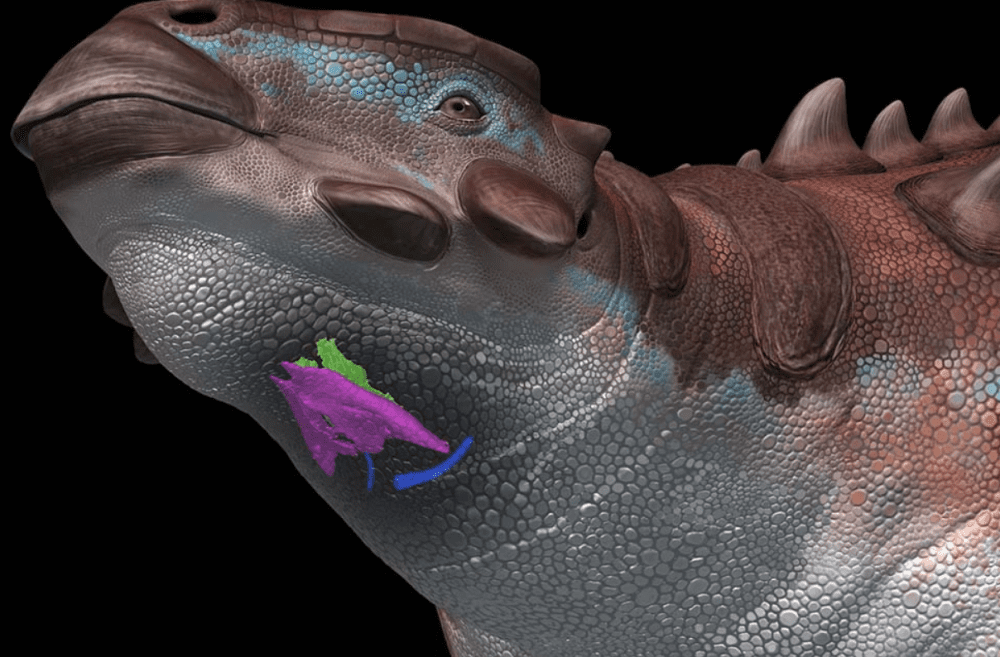A rare fossil has revealed new insights into the evolution that saw some of the oldest dinosaurs give rise to the ancient ancestors of birds, telling us that some of them may have been making bird-like vocalizations back in the Cretaceous. It’s the oldest laryngeal fossil known to science, say researchers on a new paper, revealing that a spiky armored dinosaur had the right voice box for making certain bird sounds.
Ancient voice box specimens like this one are extremely rare, as these respiratory tissues don’t normally survive to make it into the fossil record. Against the odds, the larynx of an ankylosaur, Pinacosaurus grangeri, has remained preserved since around 84-72 million years ago. The rare fossil was originally identified as a different feature of the non-avian dinosaur throat, but a new paper has uncovered that it’s actually a larynx, making it the oldest on record.
Birds have a very specific set of respiratory equipment called the syrinx that’s found at the base of a bird’s trachea. It’s able to make sound without needing the vocal folds found in mammals (which some species like bats can utilize to make death metal growls).
There are three key functions of the larynx in the animal kingdom (airway protection, respiratory modulation, and acoustic communication), but in the case of Pinacosaurus, it doesn’t seem like the voice box would be much good for closing the glottis (to keep foreign materials out of the larynx). The ankylosaur studied didn’t have a syrinx, but it did have a similarly large and kinetic larynx that researchers say would’ve kept the glottis open and therefore been good at bird-like airflow regulation, especially modifying a sound.

In total, there were four features of the Pinacosaurus larynx that were similar to the syrinx of birds like parrots and passerines. Its shape is the closest thing to a syrinx ever found in a non-avian dinosaur, and so represents the first step towards understanding how the voice boxes of tetrapods eventually evolved into the respiratory structures we see in modern birds and reptiles.
As for what sounds this might have enabled them to make, the structure probably gave rise to “loud and explosive calls as in vocal reptiles and birds,” write the authors. They would’ve used these vocalizations in a similar way to modern animals, for courtship and parental calls, as well as defending themselves against predators and their territory from intruders.
So, if you want to hear the sounds of the Cretaceous, maybe just have a chat with a parrot (but mind out for the swearers).
The study was published in the journal Communications Biology.
Source Link: Spiky Armored Ankylosaurs May Have Sounded Like Birds According To Rare Fossil